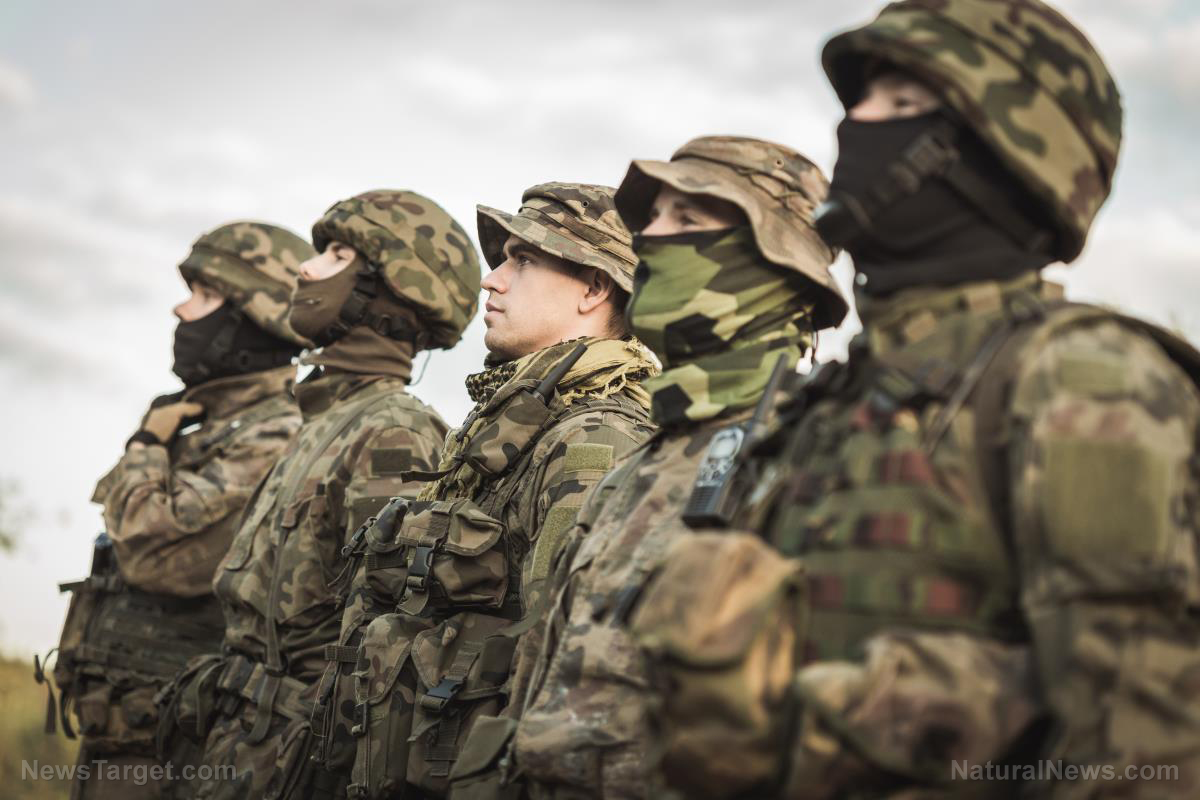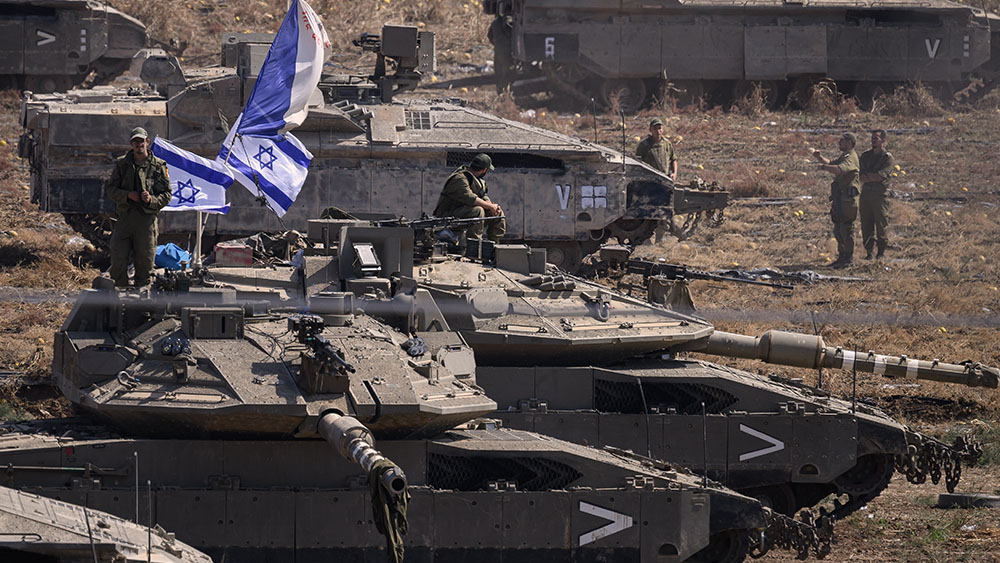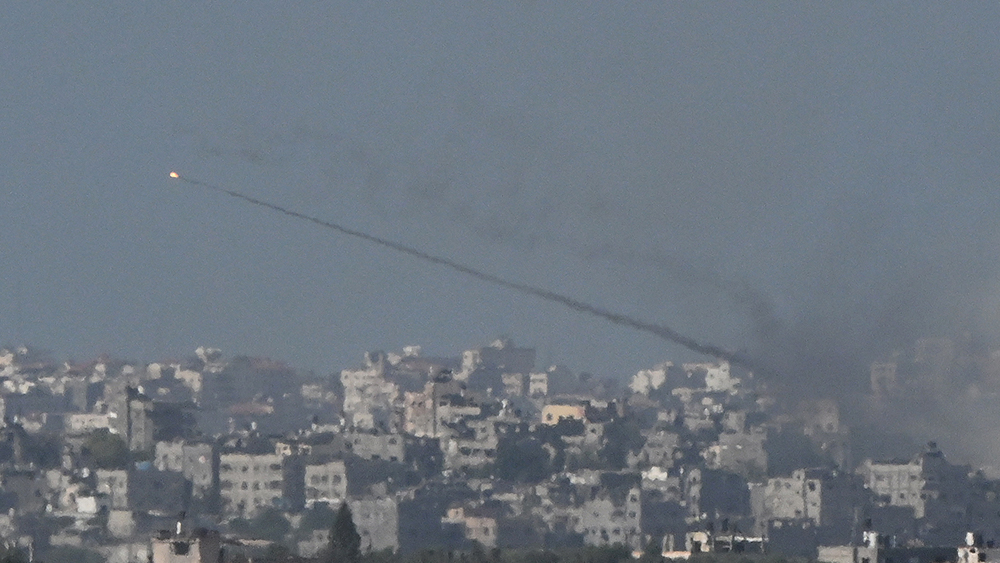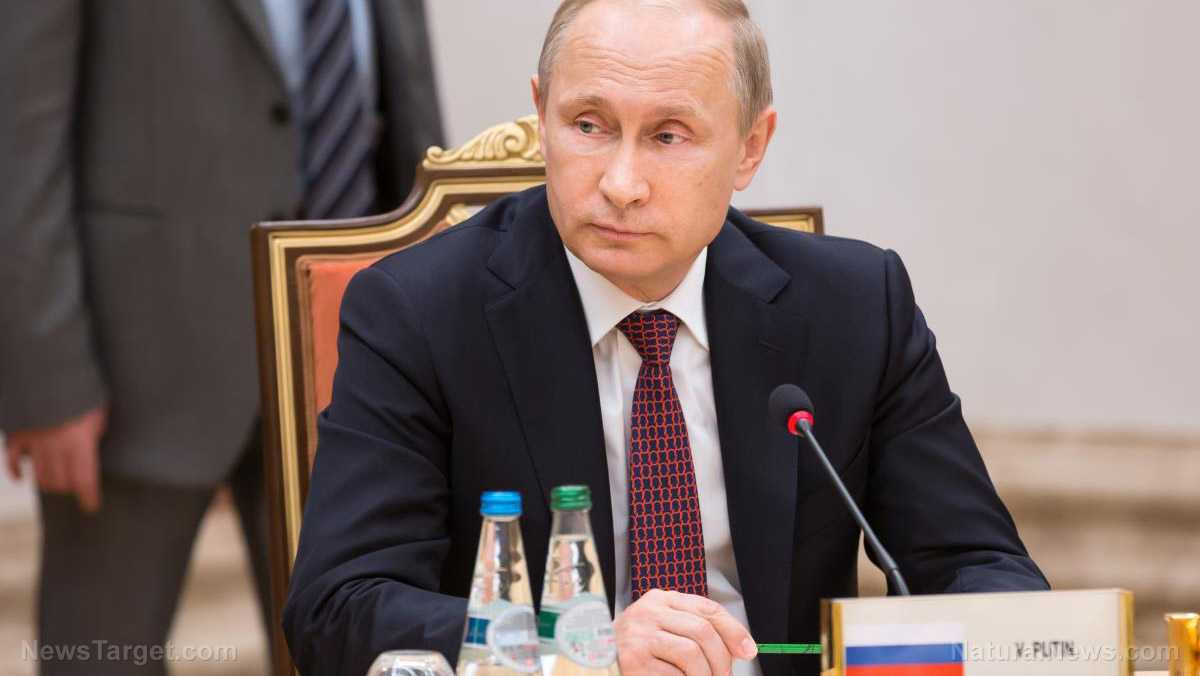Israeli forces face not only Hamas but other Palestinian factions
11/09/2023 / By Richard Brown

As the Israel Defense Forces (IDF) penetrate deeper into the hostile Gaza Strip, they encounter not only the Hamas movement, but also other Palestinian armed factions ready for conflict.
Despite their differences in ideology, influence and power, these factions share a common dedication to achieving a Palestinian state through armed resistance against Israel. They have openly displayed their willingness to cooperate during the ongoing conflict, sharing footage of their operatives working together and issuing joint statements.
Hamas, officially known as the “Islamic Resistance Movement,” has maintained control over the Gaza Strip since a violent split in 2007 with the secular Fatah faction, which leads the West Bank-based Palestinian National Authority.
Although these Palestinian factions vary in terms of their approaches to achieving their goals, they have all played a part in the ongoing “Al-Aqsa Flood” conflict, fighting alongside Hamas against the IDF’s “Swords of Iron” operation. (Related: TIMELINE: 75 Years of Israel’s human rights abuses against Palestinians.)
One of these factions, Islamic Jihad, is considered the second most powerful group in Gaza. Like Hamas, it is committed to Israel’s destruction and the establishment of an Islamic Palestinian state, focusing primarily on military means. The group, along with its military wing, the Al-Quds Brigades, has been actively involved in the current conflict.
The Popular Resistance Committees, often regarded as the third most powerful faction in Gaza, were established during the Second Intifada in 2000. It consists of former Fatah members and has loose ties to Hamas and Islamic Jihad. The group’s military wing, the Al-Nasser Salah ad-Din Brigades, has claimed attacks against Israeli forces during the “Al-Aqsa Flood.”
The Popular Front for the Liberation of Palestine (PFLP), another Palestinian faction, follows a Marxist-Leninist ideology and aims to establish a classless secular Palestinian state. Its military wing, the Abu Ali Mustafa Brigades, has conducted various attacks, including the assassination of an Israeli minister and suicide bombings.
The PFLP-GC (General Command), which split from the PFLP, seeks a more militant nationalist approach to fighting Israel. Its military wing, the Jihad Jibril Brigades, has also claimed some operations during the ongoing “Al-Aqsa Flood.”
The Democratic Front for the Liberation of Palestine (DFLP) broke off from the PFLP in 1969 and pursued a secular Palestinian state where Arabs and Jews could coexist peacefully. The DFLP and its armed wing, the National Resistance Brigades, have been active in the current conflict.
The Al-Aqsa Martyrs’ Brigades, formed during the Second Intifada, have cooperated with Hamas and Islamic Jihad. The group, like Fatah, presents itself as a secular liberation movement and has claimed numerous attacks on Israeli targets.
Another faction, the Palestinian Mujahid Movement, is one of the more recent additions to U.S. counterterrorism efforts. This group has participated in the “Al-Aqsa Flood” and has claimed attacks on the IDF.
Finally, the Palestinian Mujahideen Movement, an independent entity formed in 2006, has more Islamist orientations and close ties to Iran. The group’s Mujahideen Brigades are also involved in the current conflict.
IDF ready to face any group that takes up arms against Israel
While the IDF’s primary objective is to neutralize Hamas due to its significant military capabilities in Gaza, it has emphasized its readiness to target any group or individual that takes up arms against Israel during the ongoing conflict.
Despite a dozen attempts at reconciliation between the two main factions, Hamas and Fatah remain divided.
In late July, Palestinian President Mahmoud Abbas and Hamas leader Ismail Haniyah met for a rare face-to-face talk aimed at bridging the gap between parallel governments of Hamas in the blockaded Gaza Strip and of the Palestinian Authority, controlled by Abbas’ Fatah movement, which oversees Palestinian-run areas of the occupied West Bank.
They agreed to form a committee for intra-Palestinian reconciliation, which was no cause for celebration, according to Palestinian political scientist Moukhaimer Abu Saada. “The best way to kill something is to form a committee for it,” he said.
Saada said he doubted the move would produce any progress toward “ending the division or setting a date for Palestinian elections.”
Watch the special report about Palestinian authorities going against Hamas.
This video is from the High Hopes channel on Brighteon.com.
More related stories:
Diabolical double-think… Washington touts Israeli genocide of Palestinians as self-defense.
Sources include:
Submit a correction >>
Tagged Under:
big government, chaos, conspiracy, culture wars, dangerous, freedom, Gaza, Hamas, Holy War, Israel, Israel-Palestine war, jihad, Liberty, national security, Palestine, Resist, revolt, terrorism, uprising, violence, World War III
This article may contain statements that reflect the opinion of the author
RECENT NEWS & ARTICLES
COPYRIGHT © 2017 REVOLT NEWS





















